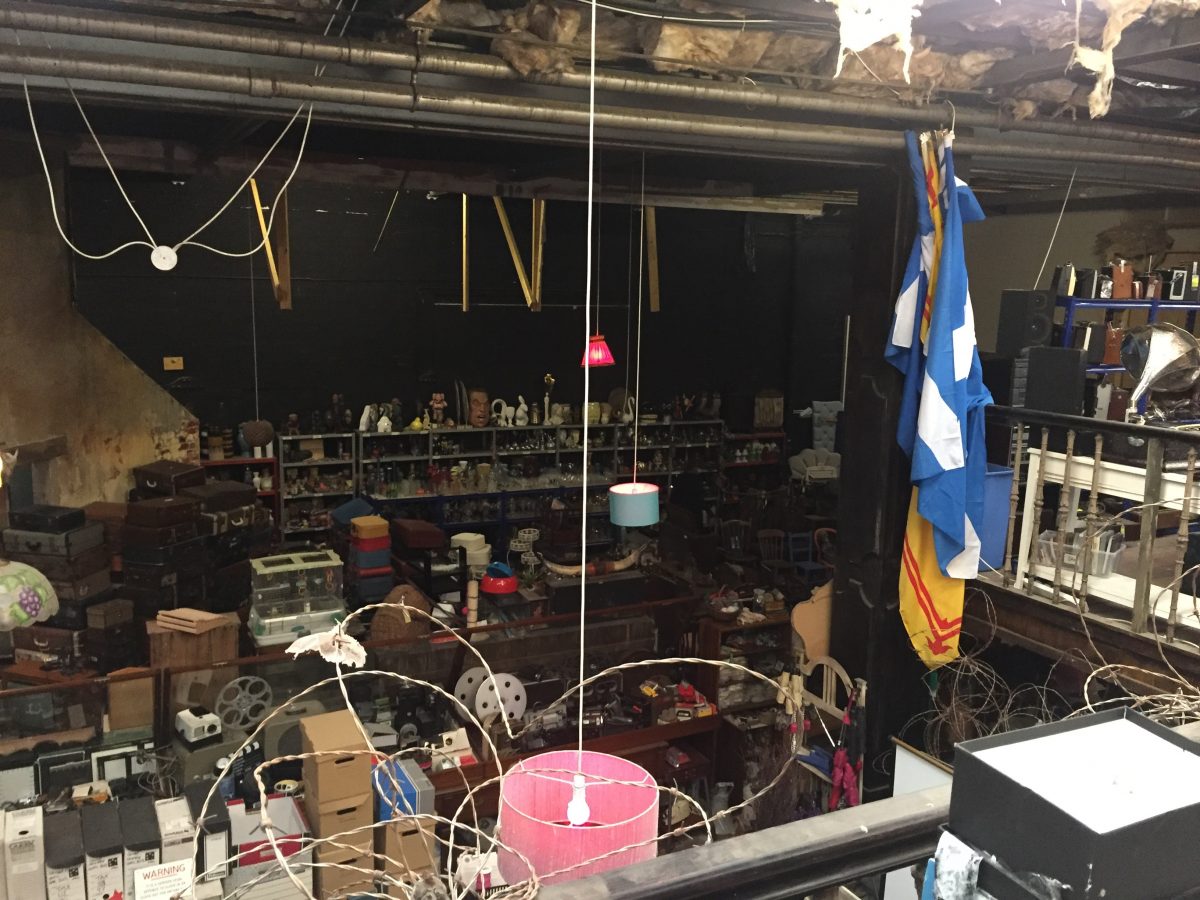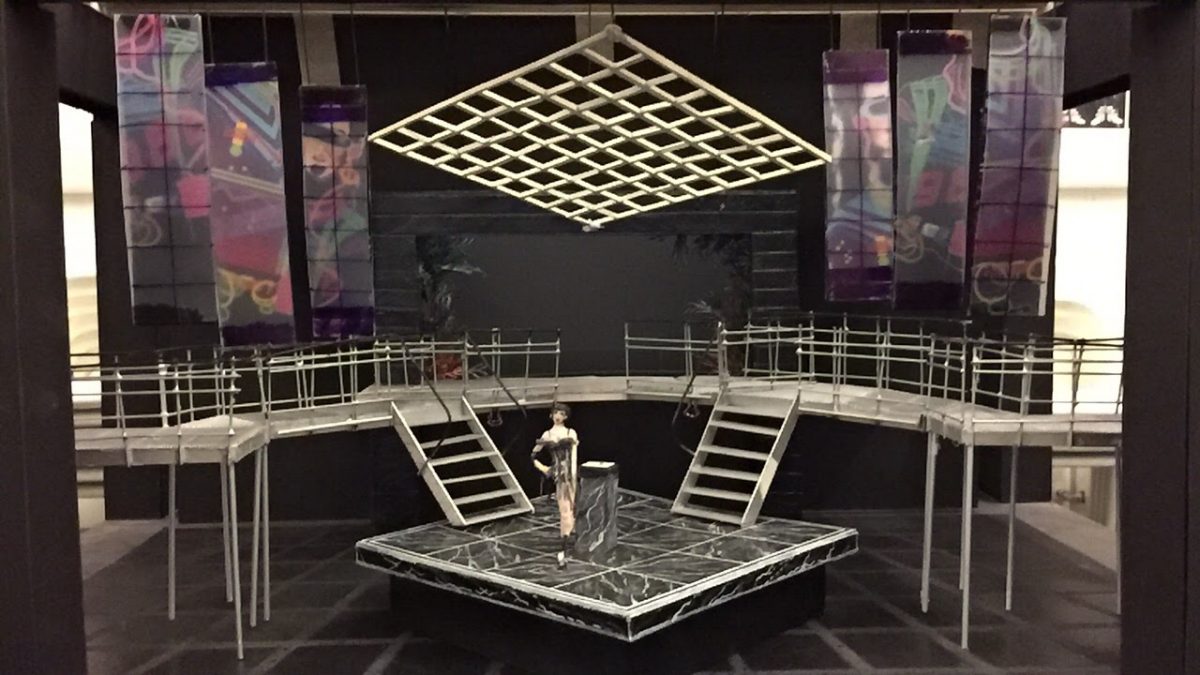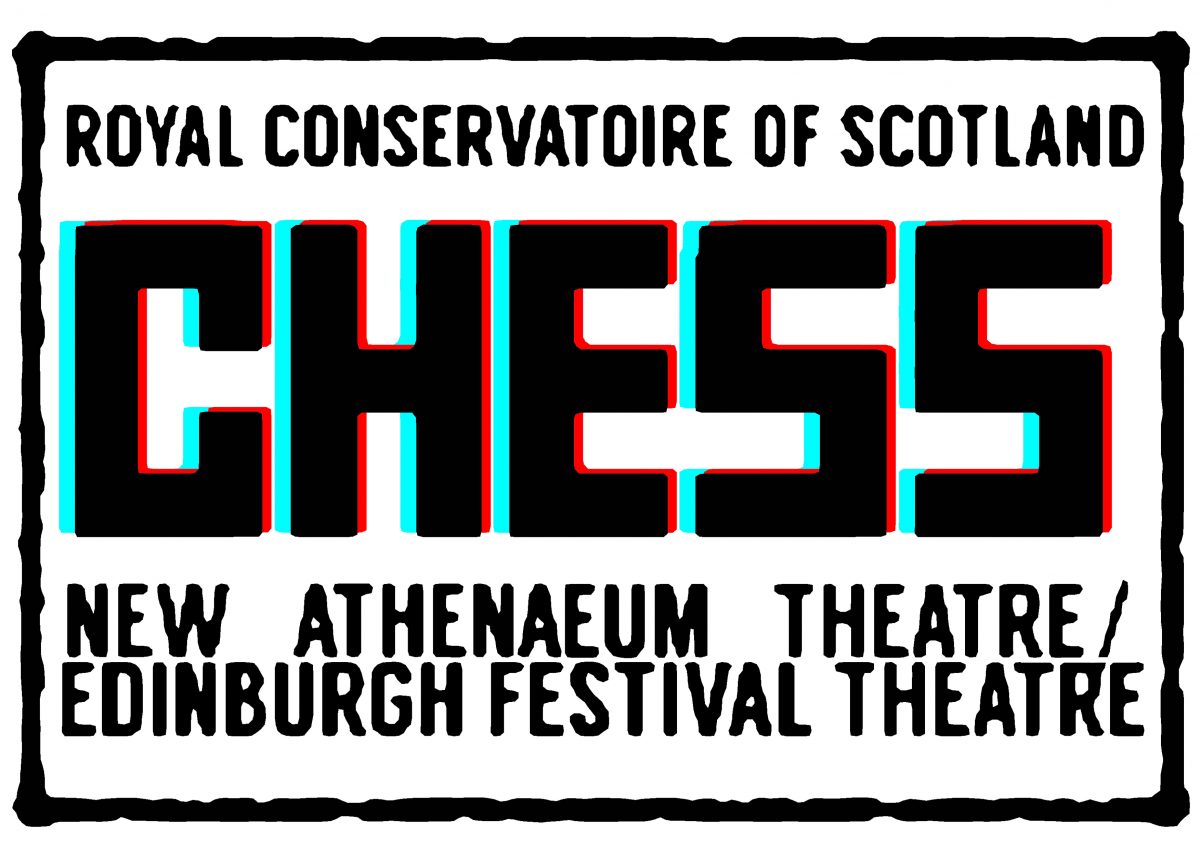The rest of this week was spent propping, either from our own props store, from the internet, or setting up props visits to stores throughout Glasgow. The main issues that became immediately apparent to us was the wealth of 80s technology required for the show, and the fact that Andrew wanted to fill every ensemble scene with as many items as he could – be them notepads, microphones, or lanyards. These difficulties made themselves present from our first visit to the RCS props store, along with the realisation that – due to many pieces being unavailable – most of our props list would have to be sourced elsewhere. However, a set of rehearsal props managed to be cobbled together and we put them into rehearsals. Propping in Glasgow is hard. My first responsibility was to phone up company props stores over the city to see if we could arrange visits and borrows – thus limiting the amount of our reasonable, yet tight, budget that we would have to spend on new items. The first problem that arose, however, are that there are very few stores in Glasgow, and – of those – even fewer open to the idea of people borrowing from them. *cough* Scottish Opera *cough*. Despite this, meetings were arranged with Titan Props, as well as with the National Theatre of Scotland and the Tron theatre to go and browse. Thankfully Kenneth’s props references had been thorough enough to a point where I could send the stores an idea of what we were looking for prior to our arrival, saving time and effort on the part of both parties and limiting mindless browsing. This was especially evident with Titan, the manager of which ushered us directly to what she thought we’d need as soon as we stepped through the gap where the door should probably have been.
Titan Props appeared, certainly to me, a Godsend. The cave of memorabilia and items identical to our reference images let to us all leaving on a high – filled with the pride and knowledge that basically everything we needed, they had. However, we still had two more stores to look over so concealed our adoration until we found out what else we could get for free. This proved to be a good idea, as when Titan finally sent us their costings it became swiftly evident that we would be hiring little, if any, from them, lest we break the bank.
NTS was our next stop, this time with Kenneth in tow. This proved very useful as he was able to give us immediate answers to proposed items rather than having us wait for him to reply to an email. Emma, who showed us around, was very useful in pointing us in the right direction to what she believed could be useful to us. However, she did explain that NTS tend to quarantine props from previous productions, resulting in a store that I think, proved smaller than we had expected – or hoped – it would be. However, we did end up sourcing a couple of suitcases and chairs from there later on which was very useful.
Lastly, came Tron. We were not expecting to find very many items from here as – Babette explained – they tend to buy in pieces based on what show they’re doing for the length of that run. However, the woman who showed us around was a former production student so understood exactly he position we were in and so was able to talk us through suggestions for things like pick-ups and returns of larger items. Having someone like this made the experience so much easier and really showed the benefits of links like this. Tron also had a box filled with retro tech and broken cans sets and belt packs which was promptly raided and shoved into a bag with a borrow sheet. Overall, the stores were an invaluable resource for use as a team, and made the part of the process which I was looking forward to the least, vaguely pleasant.



